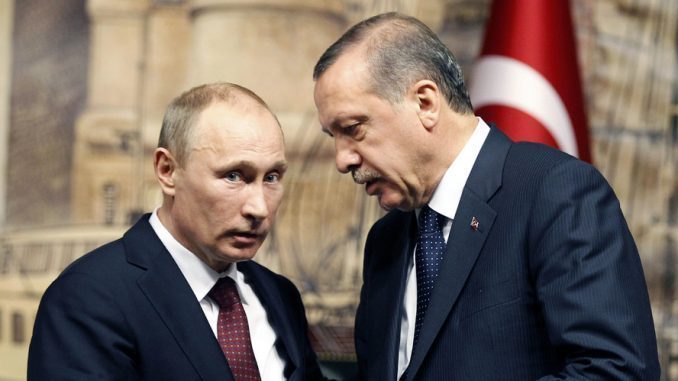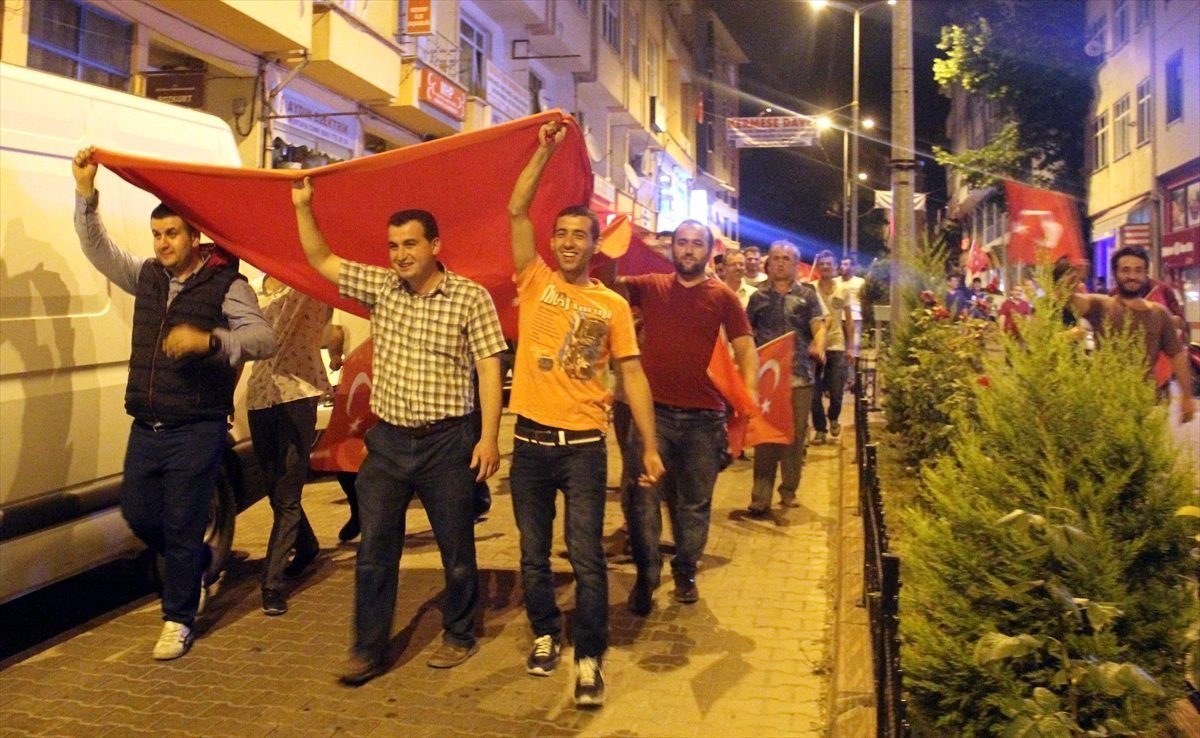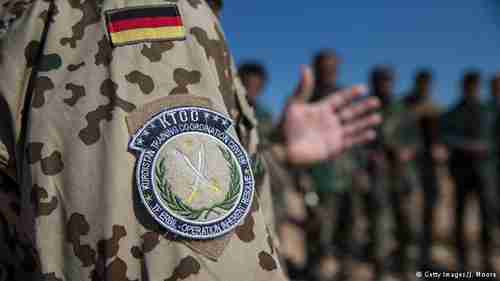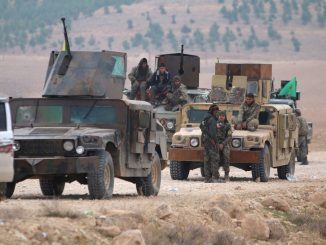
Russian and Turkish presidents had a phone call on Friday to discuss the Syrian conflict and agree on better relations after 3 Turkish soldiers were killed by Assad regime forces near Aleppo. The Russian-Turkish rapprochement draws many questions about its effect on the region in general, and the Syrian Crisis, In particular.
Ankara and Moscow only restored ties, which had been damaged by a jet incident last year, in August. They continue to pursue conflicting goals in Syria, although Turkey has of late been less openly critical of Assad than in the past.
Turkey’s military operation in Syria named Euphrates shield was launched on 24. August to drive Islamic State militants from its border and prevent Kurdish fighters from gaining ground and strengthen their positions, and has changed te balance of power in northern Syria and added more tension to the already complicated area.
These operations angered Assad regime, which saw it as an attempt to enter Aleppo city. The regime threatened the Turkish forces and Assad regime calling their operation as a breach of its sovereignty.
The Turkish military has said Thursday’s airstrike, which killed three of its soldiers, was thought to have been carried out by the Syrian air force. It is the first time Turkish soldiers have died at the hands of Syrian government forces.
Erdogan informed Putin of the attacks, in the first time Turkey had blamed the Assad regime which is given military support by Russia.
The last months showed a new way of a rapprochement between both Turkey and Russia as they agreed on mutual interests in Syria.
Turkey has however shown a willingness to respect Russian sensitivities in Aleppo by agreeing to remove al-Nusra Front militants from the town in a previous telephone conversation between Erdogan and Putin. The partnership with Russia looks like a way for Turkey to achieve a slightly scaled down version of its long-term policy aims in Syria
“Let’s make a joint fight against terrorist organizations. But Aleppo belongs to the people of Aleppo … making calculations over Aleppo would not be right,” he said in a speech in Ankara previously hinting that his army has no intentions in entering a conflict there with the Russians.
Erdogan told Putin that Turkey respected Syria’s territorial integrity and that its military incursion, launched in August to repel Islamic State from the border, showed its determination to fight militant groups, sources in the Turkish presidency said.
The Turkish sources said both leaders also agreed to try to resolve the humanitarian crisis in Aleppo, where Assad regime is trapping 275.000 civilians in a crippling siege and bombing them in a daily basis.
Erdogan may use his relations with both Russia and the opposition to stop the offensive on Aleppo and to make a deal may consist withdrawal of rebel forces from the city, or at least making a sort of agreement between them and Assad forces to break the siege and allow aids delivery to the civilians.
War on terrorism, ensuring allies’ safety
The Kremlin said also the discussion on Syria in the phone call was constructive and that both sides agreed to continue an active dialogue to coordinate efforts against international terrorism.
A year ago, Putin probably would not have relished the idea of a Turkish-backed Sunni zone in much of Syria and his ally Bashar al-Assad must detest it.
But, if IS’s hold on northeastern Syria does crumble under the Turkey-backed onslaught on it,some sort of stable authority is likely to emerge in place of the present fragmentation as Turkey and its allies consolidate their hold in the north and Turkey acts as its guarantor.
More importantly, Putin knows that cooperation with Turkey is beginning to glue it into a long-term partnership with Russian interests. It is not simply that Turkey’s relations with the US and NATO are tense and mutually suspicious, and steadily deteriorating.
On 23 October, Erdogan told the Russian TV channel Rossiya-1: “I need the support of my respected and valuable friend Putin in the joint struggle against terrorism in this region. We are ready to take every step necessary to cooperate with Russia in this area.”
Turkey sent its forces to Iraq also to fight ISIS in Mosul and take part in liberating it, and to prevent the Iran-backed Shiite militias from seizing the city and achieving their goal in a demographic change in the city.
War on terrorism didn’t just include ISIS, but also the Kurdish militias in Syria. Russia has at first cooperated with the Kurds in the fight against ISIS, but this support stopped after Turkey started its operations giving Turkey a green light to go on in its plans.
Turkey attacked the Kurdish militias ordering them to withdraw from East Euphrates region. Many clashes erupted between the two alliances and recently Turkey said it will force Kurdish militias out of Manbij.
The Turkish military also shelled Kurdish militias’ positions northern Syria while the rebel forces clashed with them in many incidents.
Turkey sees the PYD and their armed wing YPG as an extension of Kurdish PKK militants who have waged a three-decade insurgency in southeastern Turkey.
Turkey also aims at ensuring a safe zone for its Sunni allies where they will be under the Kurdish threat, or under the Iranian
the eyes of government strategists and commentators in the Turkish capital are almost exclusively focused on eliminating opponents of its Sunni allies in both Syria and Iraq and then building those groups up in the medium term into stable frontline political entities working closely with Turkey.
Having been frustrated from gaining this prize for so long and paid such a huge cost, it is understandable that Ankara is determined not to miss it now.



